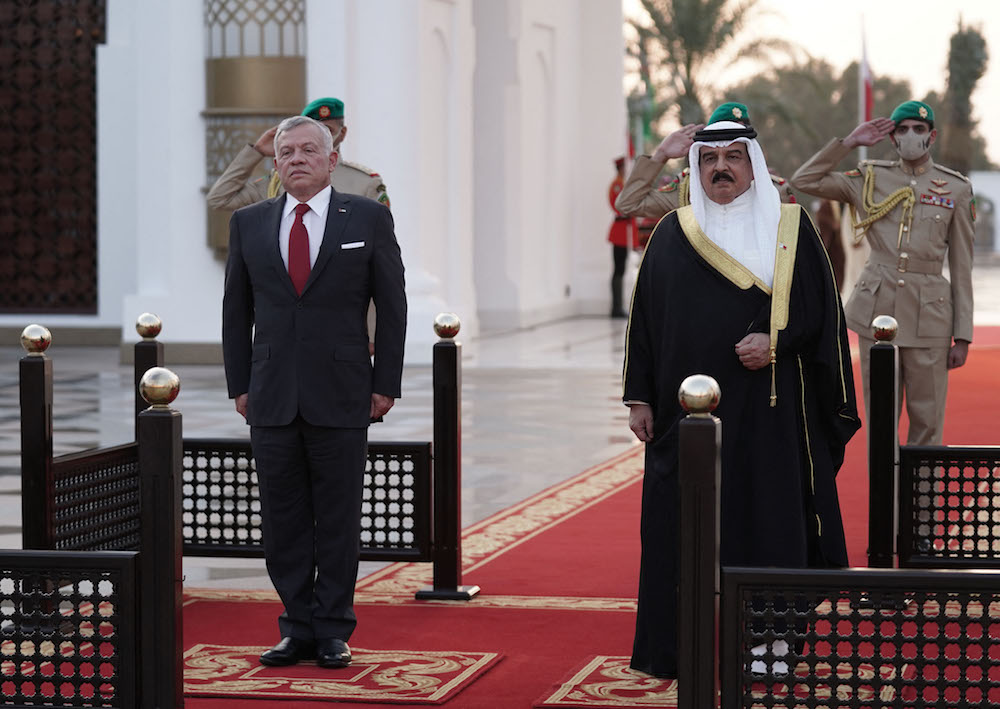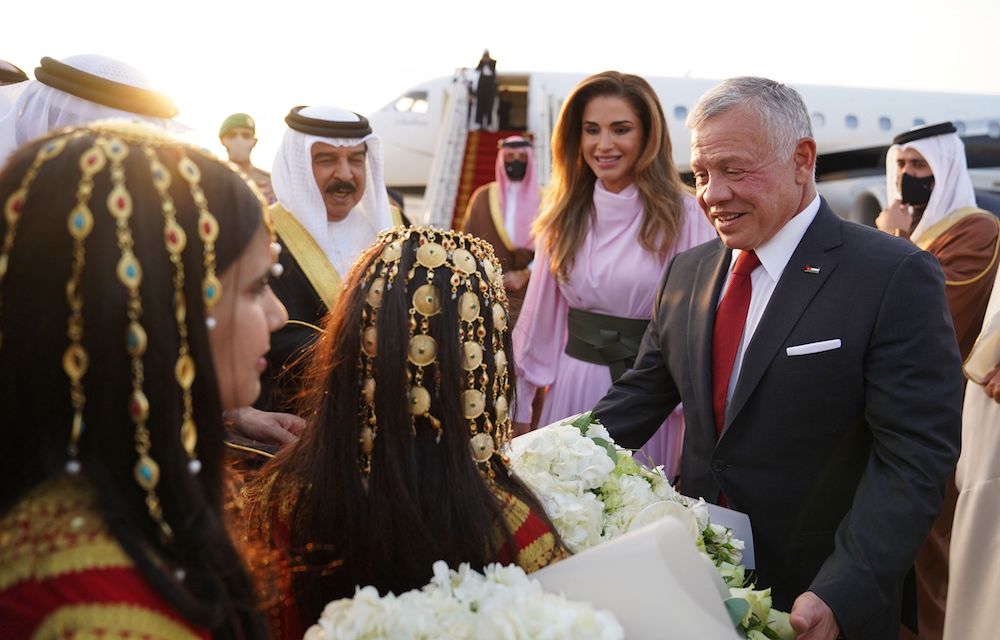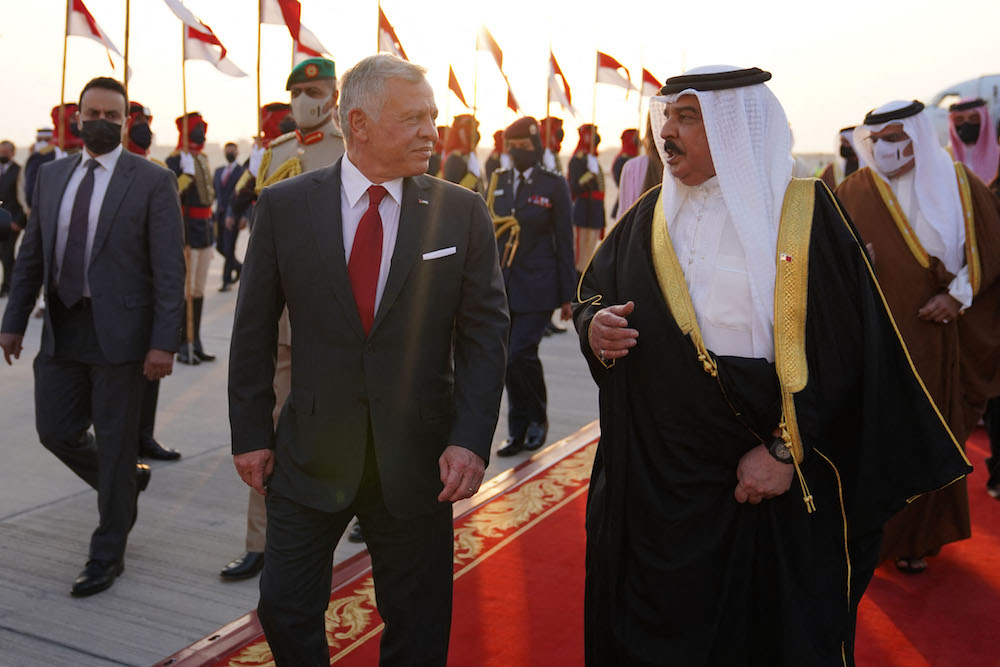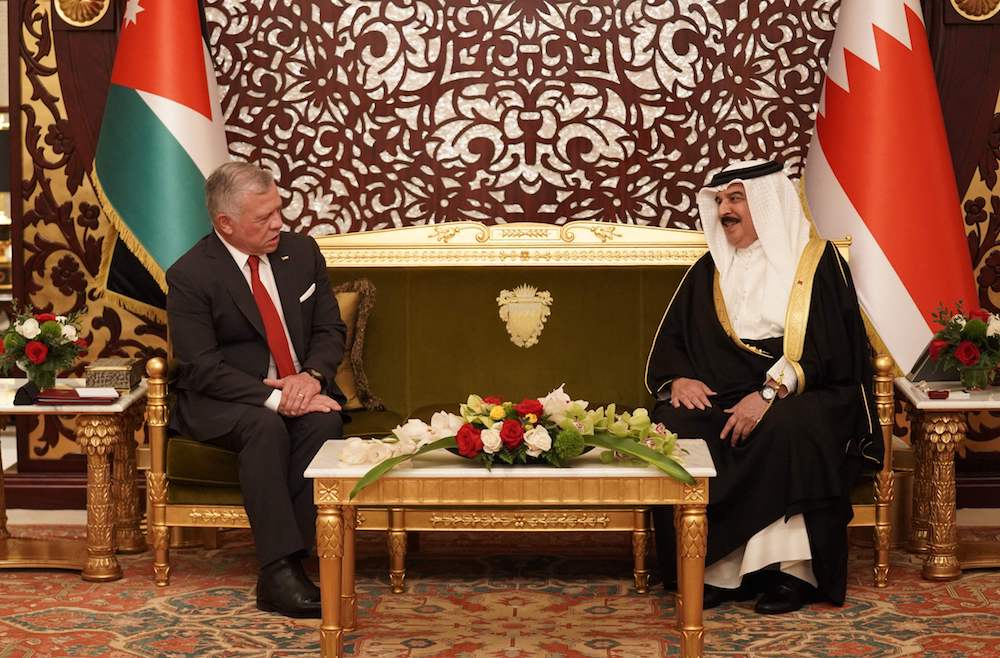Kings of Bahrain, Jordan agree to continue cooperating on Arab causes and regional security
LONDON: Bahrain’s King Hamad and Jordan’s King Abdullah II on Monday stressed the need to continue to coordinate and consult on issues of mutual concern, the foremost of which is the Palestinian cause.
“The two leaders noted the centrality of the Palestinian cause, calling for stepping up efforts to reach a just and comprehensive peace on the basis of the two-state solution, as a strategic option to end the conflict,” according to a statement issued by Petra, the Jordan News Agency.
King Abdullah, accompanied by Queen Rania, was in Manama for an official visit. The royal couple was greeted on arrival at Sakhir Air Base by King Hamad and Crown Prince Salman bin Hamad.
The Jordanian king praised the strong bilateral ties between the countries and highlighted the importance of expanding cooperation in all sectors. He commended Bahrain’s stances in support of Arab causes and its steadfast efforts to maintain Arab unity.
His Majesty King Abdullah II holds talks with #Bahrain King Hamad bin Isa Al Khalifa, reaffirms the deep-rooted ties between #Jordan and Bahrain, and keenness to advance relations and cooperation in service of the mutual interests of the two countries and peoples pic.twitter.com/hEixNw27fa
— RHC (@RHCJO) November 22, 2021
King Hamad also praised the deep-rooted ties between the nations, the advanced level of cooperation, and the contributions made by the Jordanian community in Bahrain in all sectors. He commended Jordan’s efforts to arrange the safe return of Bahraini students and nationals to their home country during the COVID-19 pandemic. He stressed the importance of bilateral cooperation in combating the pandemic and limiting the spread of the virus, and thanked King Abdullah for the facilities Jordan provided to the Bahraini embassy in Amman, the Bahrain News Agency reported.
Both leaders said they were satisfied with the levels of bilateral trade and the advanced level of economic and trade ties. They called for continued coordination in efforts to counter terrorism and sustain security and stability.
Their Majesties King Abdullah II and Queen Rania are received by #Bahrain King Hamad bin Isa Al Khalifa and Crown Prince Salman bin Hamad Al Khalifa, who is also prime minister of Bahrain, upon arrival at Sakhir Air Base#Jordan pic.twitter.com/LPqdSwqHV0
— RHC (@RHCJO) November 22, 2021
The talks also covered the latest developments in Syria, with King Abdullah reiterating his country’s support for efforts to preserve the country’s sovereignty, stability, territorial integrity and the unity of its people.
In addition the two monarchs stressed the need to work to stop foreign interference in regional affairs, and to enhance bilateral cooperation to stabilize regional security and stability and protect international navigation in the Arabian Gulf from any threats that affect the movement of global trade, BNA said.




Jordan, Israel, UAE ink energy-for-water agreementBahrain says it foiled planned attack, confiscated Iranian weapons and explosives



